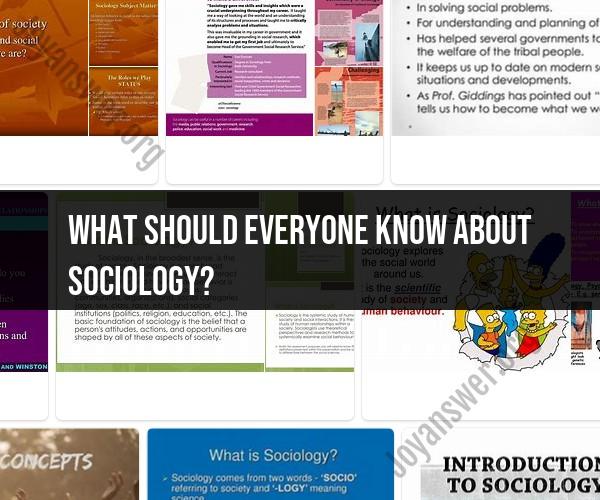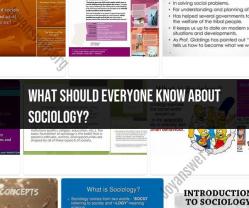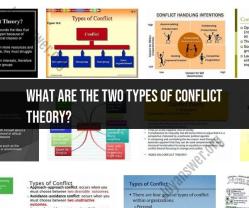What should everyone know about sociology?
Sociology is the study of society, human behavior, and the social structures and systems that shape our lives. It offers valuable insights into the way societies function, the forces that influence individual and group behavior, and the impact of social institutions. Here are some essential insights from sociology that everyone should know:
Socialization: Sociology teaches us that much of our behavior is learned through a process called socialization. From a young age, we acquire values, beliefs, norms, and behaviors from our families, peers, and society at large. Understanding socialization helps us comprehend why people from different backgrounds may have distinct worldviews.
Culture: Sociology emphasizes the significance of culture in shaping our identities and behaviors. Culture encompasses language, customs, traditions, art, and more. It's a powerful force that influences how we perceive the world and interact with others.
Social Institutions: Societies are organized around social institutions such as family, education, religion, government, and the economy. These institutions play a crucial role in maintaining social order and defining our roles and responsibilities.
Social Stratification: Sociology explores social stratification, which is the division of society into different social classes or hierarchies based on factors like income, education, and occupation. Understanding stratification helps us grasp issues related to inequality and social mobility.
Social Change: Sociologists study how societies change over time. This includes examining factors like technological advancements, cultural shifts, and political movements that drive social change. It helps us understand the dynamics of progress and resistance.
Social Interaction: Sociology delves into the intricacies of social interaction. It explores concepts like norms (shared expectations for behavior), roles (sets of expectations associated with a particular position), and deviance (violations of social norms).
Social Issues: Sociology sheds light on pressing social issues, including poverty, discrimination, crime, healthcare, and education. By analyzing the root causes of these problems, sociologists contribute to efforts to address them.
Globalization: In our interconnected world, sociology examines the impact of globalization on societies and cultures. It explores how information, goods, and people flow across borders, influencing economies, politics, and identities.
Research Methods: Sociology equips individuals with research skills to investigate social phenomena. Methods include surveys, interviews, observations, and data analysis. This helps us gather evidence and make informed decisions.
Empathy and Perspective: Perhaps most importantly, sociology fosters empathy and an understanding of diverse perspectives. By studying the experiences of people from various backgrounds, we can better appreciate the complexities of the human experience.
Social Movements: Sociology helps us understand the origins and dynamics of social movements, which are organized efforts to bring about social and political change. From civil rights to environmental activism, these movements shape our world.
Critical Thinking: Sociology encourages critical thinking by challenging assumptions and encouraging individuals to question societal norms and values. It promotes a deeper understanding of the social forces that shape our lives.
In summary, sociology provides a lens through which we can better understand ourselves, our communities, and the larger world. It equips us with the knowledge and tools to engage in meaningful discussions, contribute to positive social change, and build more inclusive societies.




